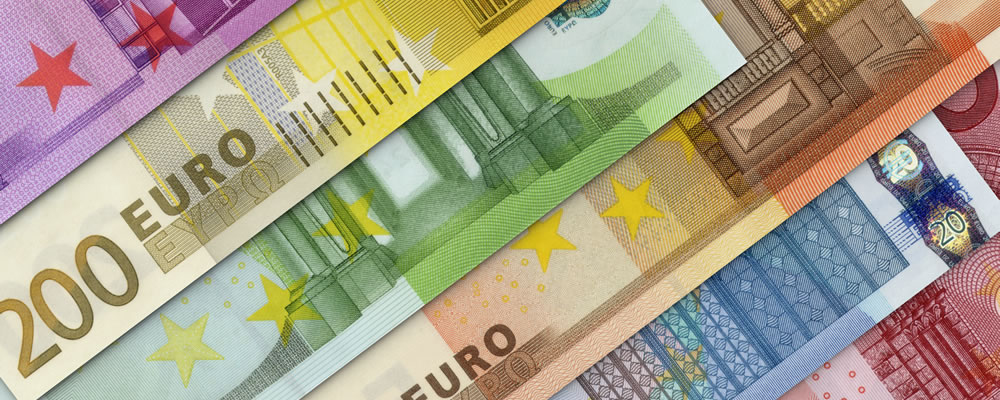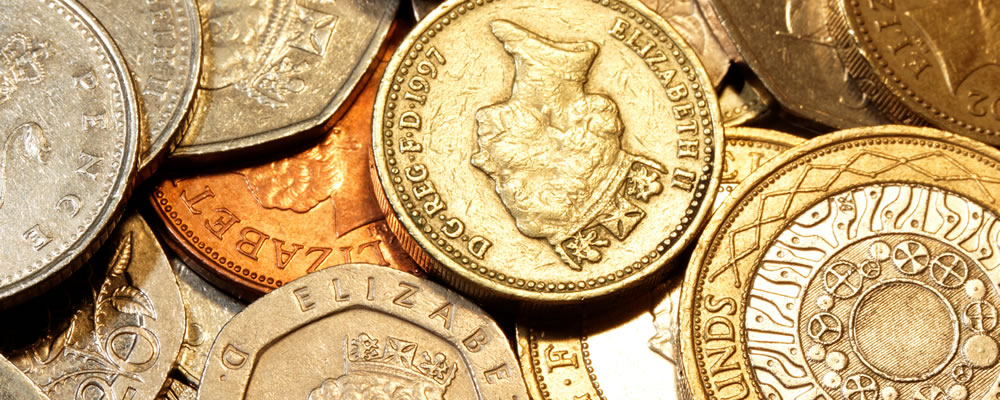The Pound Euro exchange rate jumped beyond 1.17 on Wednesday despite the UK’s BBA Loans for House Purchase data coming in below forecasts.
- UK GDP reprints on earlier estimates – Pound Euro exchange rate struggles around opening levels
- Pound Euro advances on CBI data – Best exports orders in two years
- Latest BoE auction goes to plan – Bank able to buy sufficient amount of bonds
- Euro weakened by mixed PMIs – Consumer confidence also disappoints
- GBP EUR exchange rate forecast – UK home loans figures could be the latest post-Brexit point of concern
Pound Euro Exchange Rate Fluctuates around Opening Levels after UK GDP Data
A strong showing from business investment and firm GDP figures have failed to particularly strengthen the Pound today, which has fluctuated around opening levels since the start of trading. The latest estimates of second-quarter GDP are the same as the initial round; 0.6% on the quarter and 2.2% on the year. Meanwhile, French GDP has clocked in at the forecast levels of 0.0% on the quarter and 1.4% on the year. German consumer confidence edged slightly higher to 10.2, instead of holding steady at 10.
The GBP EUR exchange rate is currently trending around opening levels at 1.1725.
Pound on the Decline as Leading Think Tank Warns NHS Needs Foreign Workers
Yesterday’s BBA mortgage figures may have helped soften fears over a post-Brexit shock to the economy, but today’s developments have once again soured trader outlook for the UK. Leading think tank the Institute of Public Policy Research (IPPR) has reported that EU workers are vital for the health of the NHS. The National Health Service currently employs 57,000 citizens who are originally from the European Union. IPPR claims these workers should be offered British citizenship if they have been in the UK for more than six years, otherwise the NHS will face a staffing crisis.
The Pound is currently sliding across the board.
(Last updated 08.58, 25/08/16)
GBP EUR jumped 0.5% to hit a high of 1.1738 as Wednesday’s European session continued. The Pound was also trending in a stronger position against the US Dollar.
The BBA Home Loans figure for July dropped from a negatively revised 39,763 to 37,662 but the report failed to dampen the Pound’s uptrend. This was despite the fact that experts have warned the data isn’t entirely representative of post-Brexit mortgage demand; many of the mortgages approved after the referendum will have been applied for long before the vote.
(Previously updated 09:00 GMT 24/08/2016)
Positive UK data and a successful Bank of England (BoE) asset purchasing auction helped the Pound Euro exchange rate to strengthen yesterday. Today sees the Pound Euro (GBP EUR) exchange rate trending below opening levels as markets look to the BBA Loans for House Purchase figure, which will give a better indication of consumer confidence and housing demand post-Brexit.
As well as the latest UK developments, below-forecast Eurozone data soured appetite for the Euro, paving the way for further GBP EUR exchange rate gains.
Positive CBI Data and Successful BoE QE Auction Boosts Pound (GBP) Exchange Rates
The Pound rally continued yesterday, boosted by positive domestic data. Sterling’s initial rise was thanks to traders beginning to close some of the record 94,000 short positions held against the UK currency. Data later stole focus, with the Confederation of British Industry (CBI) releasing figures that showed UK manufacturers received their highest volume of export orders in two years. The CBI interviewed 505 firms and found that 21% experienced an ‘above normal’ level of orders. The CBI Trends Total Orders figure for August had been forecast to fall from -4 to -10, but instead only ticked down to -5. Trends Selling Prices rose from 5 to 8.
Investor appetite for the Pound was further increased after the Bank of England (BoE) was able to hold a second successful reverse bond auction. The first Tuesday auction under the expanded asset purchasing programme had seen the BoE failing to attract enough offers to sell government bonds with the required maturities. The BoE’s quantitative easing programme runs on the first three days of the week, with each day being dedicated to the purchase of different lengths of gilts. The fact that two Tuesday auctions have now been successful calmed market worries, although Henderson Global Investors’ Head of Interest Rates Mitul Patel claimed;
‘Whilst the Bank attracted sufficient offers, they had to pay over a 5bps premium compared to the prevailing market yield level for some bonds. Gilts have rallied sharply following the result, led by longer dated bonds and it again raises concerns over how easily they will be able to complete their asset purchases over the coming months.’
Falling Consumer Confidence Adds to Euro (EUR) Woes after Mixed Eurozone PMI Slew

The Euro’s position weakened throughout the day yesterday after a slew of mixed PMIs softened demand for the common currency. French indices largely over-performed, with the services index strengthening from 50.5 to 52.0 instead of remaining flat and the composite index climbing from 50.1 to 51.6 instead of 50.4. The Eurozone services and composite indices also bettered forecasts, rising more moderately above expectations.
However, other reports were not so positive. Eurozone manufacturing fell from 52 to 51.8 against predictions of no change, while French manufacturing weakened ten basis points instead of recovering from 48.6 to 48.8. The German services index weakened one point further-than-expected.
According to Markit Chief Economist Chris Williamson, however, even with the worse-than-forecast performance, economic activity in the Eurozone remains strong, although the sluggish pace will do nothing to lower the possibility of further policy easing from the European Central Bank (ECB). Commenting on the Eurozone composite PMI, Williamson noted;
‘While the resilience of the PMI in August will add to the belief that the ECB will see no need for any immediate further stimulus, the weakness of the overall pace of expansion and disappointing trends in hiring, order books, business optimism and prices all suggest that policymakers will keep the door open for more stimulus later in the year.’
Pound Euro (GBP EUR) Exchange Rate Forecast; UK Home Purchase Loans Decline the Next Post-Brexit Concern?
Tomorrow’s data docket opens with a slew of low-impact German data, as well as the more important finalised Q2 GDP figures. The non-seasonally adjusted growth rate of 3.1% previously surprised the markets, but there are no expectations that it will be revised in the final print of the data. This will likely boost confidence in the resilience of the Eurozone economy, stoking Euro appetite.
Later, the UK’s BBA loans for house purchase figure for July is expected to show a drop in mortgage approvals from 40,103 to 38,500. With estate agents having already warned about the impact of the Brexit decision upon the UK’s property markets, investors are unlikely to react well to a slowdown in lending for property purchases. Conversely, a better-than-expected figure will boost appetite for the Pound as the markets reassess their dovish reviews on the sector’s ability to weather the Brexit storm.
GBP, EUR Conversion Rates
The Pound Euro (GBP EUR) exchange rate was trading around 1.1648, while the Euro Pound (EUR GBP) exchange rate trended around 0.8584, towards the end of yesterday’s European session.



